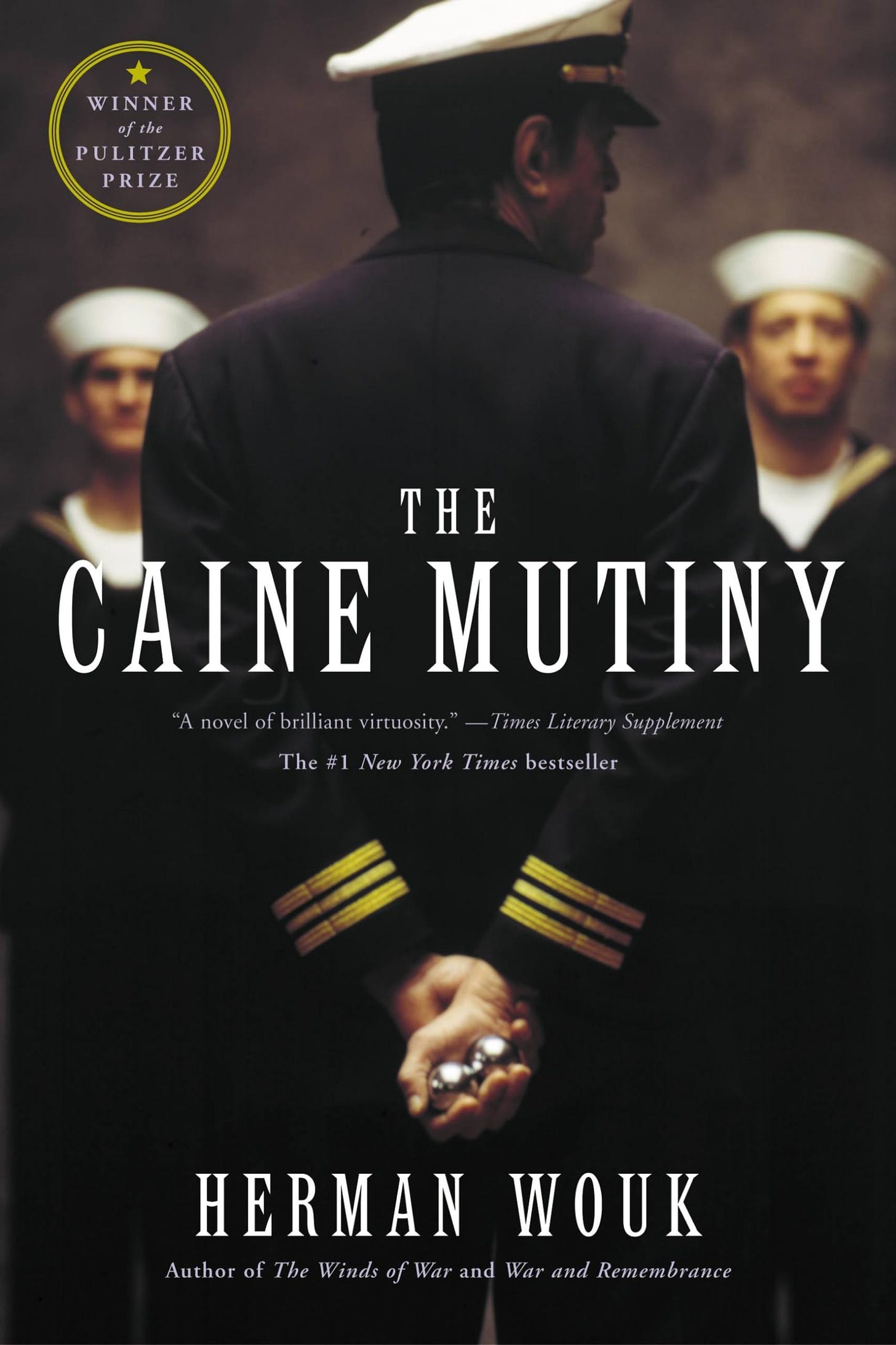What to Read Next: March 28, 2025
Issue #369, featuring historical fiction set in WWII
Happy Friday, readers!
It’s nice to be back after a week away. Our family had an absolute blast in Southern Utah. We’ve been there for four Spring Breaks in a row and have come to really love the area — the “Mighty Five” national parks, the state parks, the off-the-map canyons. It’s all just incredible. I can’t recommend it enough if you’ve never been.
Here’s what is on tap for the newsletter this week:
A review of Herman Wouk’s The Caine Mutiny
A book rec for March Madness
April releases I’m looking forward to
5 Things: Links and Opinions
Let’s get to it!
Read More Books is a reader-supported publication. Paid subscribers get full access to every issue and the archives. Subscribe today for just $5/month or $45/year.
The Caine Mutiny by Herman Wouk
Herman Wouk is not very well known today, but was one of the titans of historical fiction in the latter half of the 20th century. His books sold millions of copies, garnered positive critical reviews, and led to wildly popular film/TV adaptations. Best remembered for his WWII epics Winds of War and its sequel War and Remembrance, I jumped into Wouk’s work with The Caine Mutiny, his 1952 Pulitzer-winning novel that was then turned into a smash Broadway play as well as a successful Humphrey Bogart film.
Willie Keith starts the novel as an innocent and fairly coddled young man bolstered by his family’s wealth. With WWII in full swing and the army draft approaching, he decides to enlist in the Navy instead, hoping for a better experience than the front lines.
Eventually assigned to the minesweeper U.S.S. Caine, Keith does a lot of growing up in a hurry — as most young men in the era were forced to do. The ship’s captain, however, soon proves to be a toxic thorn in the crew’s side. As you can guess from the title, the men mutiny during a poorly handled crisis and remove Captain Queeg from leadership. Later, they all must explain and reconcile their actions in a court-martial that will have you rethinking everything you assumed up to that point.
Each of three parts — coming-of-age, mutiny, and court-martial — are given fairly equal attention and the book felt shorter than its 650 pages (in a good way). I was sucked in the from the start and had a hard time putting it down. Though The Caine Mutiny is not very well known these days, it’s been one of my favorite Pulitzer reads and absolutely holds up ~75 years later. If you’re a fan of historical fiction, especially set in the WWII era, this is an unheralded gem to add to your list.



